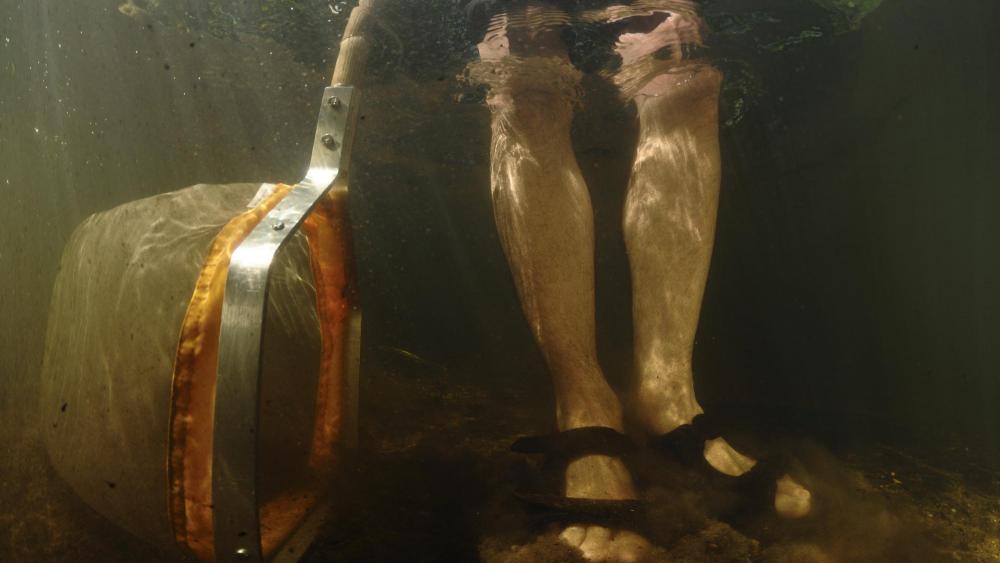
To find out what condition our waters and their inhabitants are in, researchers are getting in touch with lakes and rivers. | Photo: Solvin Zankl
Research in the laboratory | Photo: Andy Küchenmeister
Who is researching our waters?
Our waters pose many questions, which scientists from many fields are trying to answer: How does water disperse in a landscape, what is the fate of nutrients entering groundwater and over which time? What is the effect of the substrate through which water runs? Hydrologists try to address these questions and many more. Which animals and plants are widespread in our lakes, rivers or seas, and how do they live in these environments? How do water dwelling animals interact with one another, and what are the requirements for their habitat? These are questions that are researched in the fields of biology and ecology while limnologists are more interested in the energy flows within our waters. They are researching, for example, the sources of carbon in rivers and what happens under the surface of a lake when it freezes over in winter. Marine biologists and Oceanographers take a closer look at the oceans to understand the above questions as well as the big differences between the ecosystems and their inhabitants in conjunction with the multiple drivers that affect them.
What can we learn from their findings?
Research findings from the various fields give us an insight into the state of our waters. Scientists concerned with the effects of pollutants on organisms and their environments can determine which areas of water are particularly polluted. Results from the field of biology can then help to understand which species are particularly sensitive to the effects of pollution, and what results this could have on the entire river ecosystem as a whole.
Stockin on the river Oder | Photo: Bianca Neumann
How is the knowledge gained from research being implemented?
Research is not just interesting as and of itself. The results of research can help to derive measures for the protection of our waters and monitor the success of their implementation. For example, the watchful eye of research can lead to the protection of threatened species of fish. In cooperation with partners from politics, administration and practice, they get to the heart of the matter – the causes for the fish being under threat – and start up projects like Wanderfisch, to inform more people about the risk status of our native species of fish.



